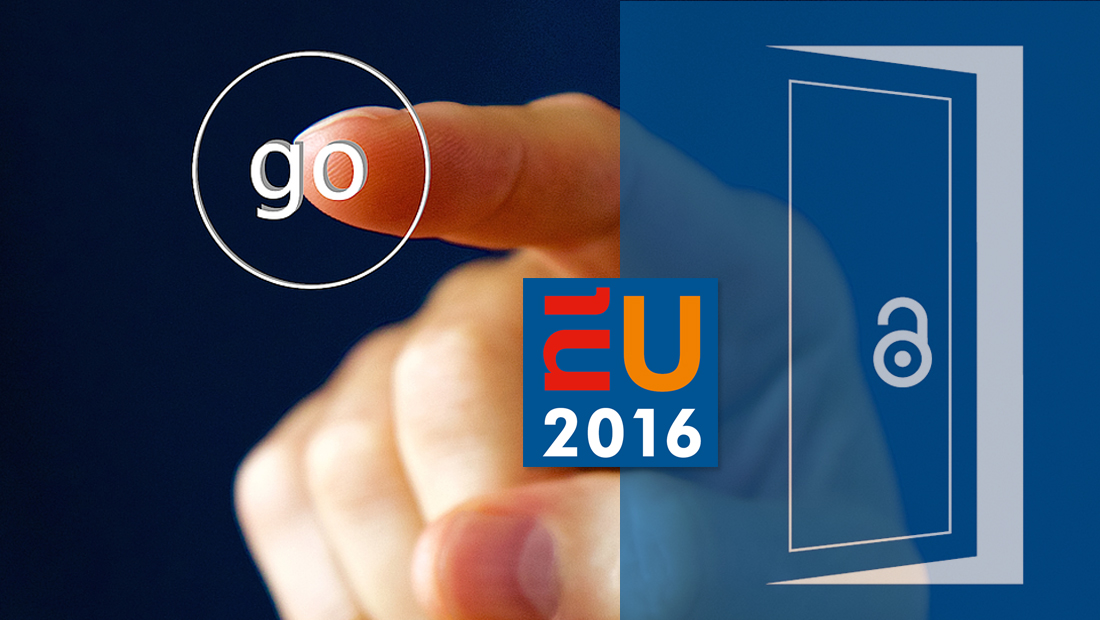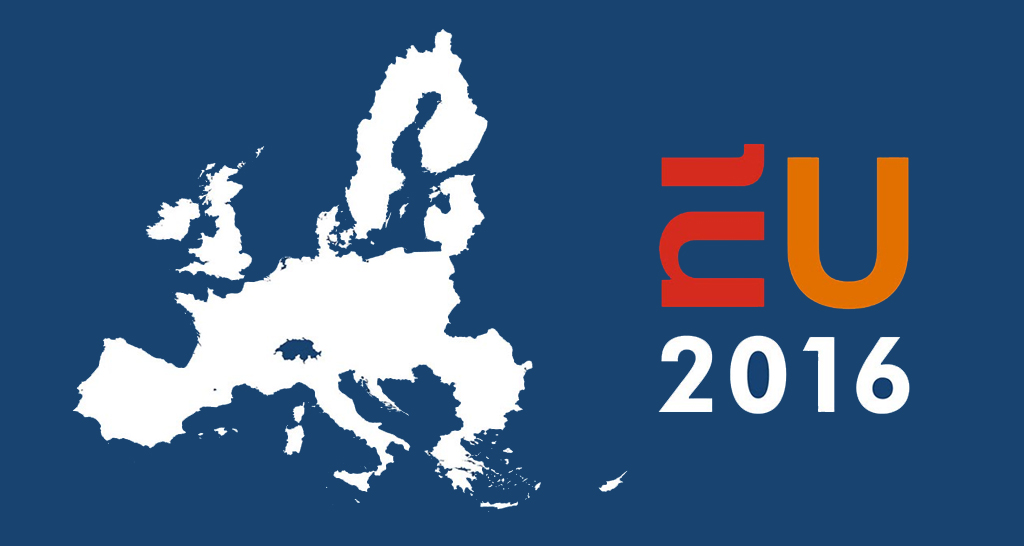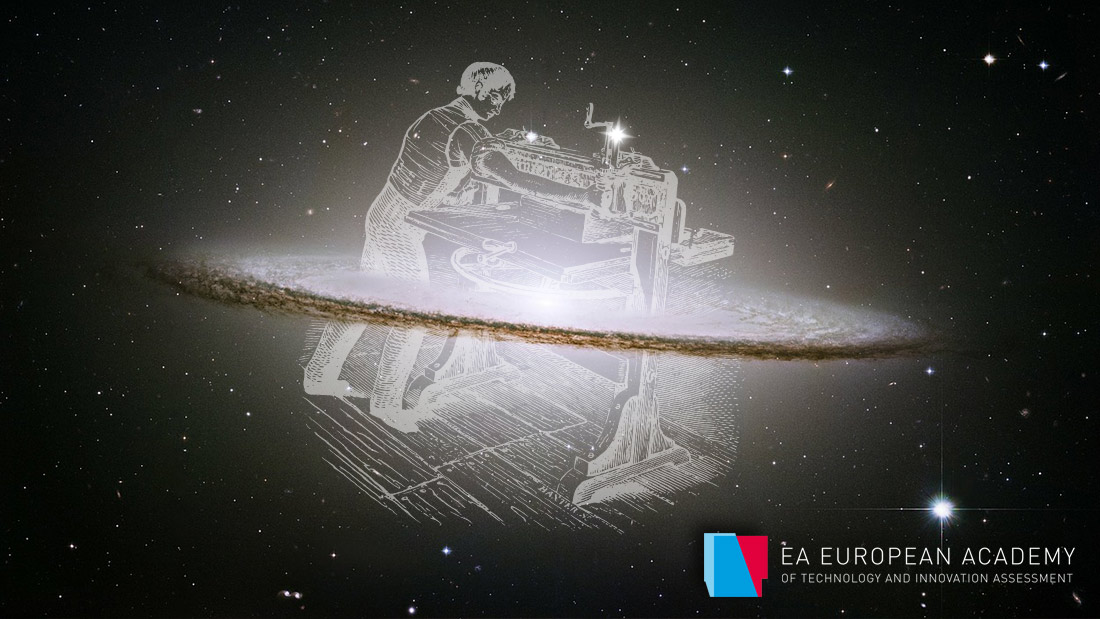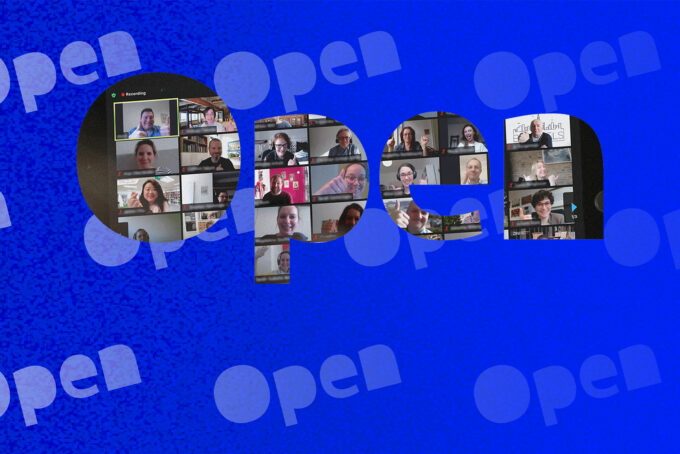
From Vision to Action? The Amsterdam Call for Action on Open Science
At the Amsterdam Conference on Open Science hosted by the Netherlands’ EU Presidency on April 4 and 5 2016 the Dutch presidency presented the Amsterdam Call for Action on Open Science. It formulates twelve action items striving for full Open Access for all scientific publications and a new approach for optimal reuse of research data until 2020.
The Call for Action is the final outcome of the Amsterdam Conference on Open Science with participants from research funders, research performing organisations (including researchers, libraries and support staff), publishers (including information service providers) and businesses. It is formulated as a pan-European effort with ambitious goals.
Europe 2020: Full Open Access and optimal reuse of research data
The main objectives of the Call for Action are to achieve full Open Access for all scientific publications and a fundamentally new approach towards optimal reuse of research data. The latter meaning that data sharing and stewardship become the default approach for all publicly funded research, however an opt-out will be possible if the data deserve special protection (e.g. privacy). To achieve these goals 12 action items are formulated that are split in the following five themes following the structure of the European Open Science Agenda:
- Removing barriers to Open Science
- Developing research infrastructures
- Fostering and creating incentives for Open Science
- Mainstreaming and further promoting Open Science policies
- Stimulating and embedding Open Science in science and society
Each of the 12 action items consists of a small description of the issue at hand followed by a broad solution, concrete actions and the expected positive outcomes. This blogpost will concentrate on two action items that belong in our opinion to the most relevant ones.
Change assessment, evaluation and reward systems in science
The Amsterdam Call for Action on Open Science (predominantly action item 1) is one of the first publications by political actors pointing out that the existing emphasis on publication (in science), thus citation counts and impact factor are not corresponding with the goals of the political actors. Beyond that it is argued that the current system inhibits the progress of science and innovation, and the optimal use of knowledge. In the Call for Action new evaluation and assessment systems are proclaimed that encourage Open Science and create incentives for individual researchers, funding agencies, and research institutes. Concrete steps needed to achieve them are said to be a harmonized EU approach, reforming the reward systems on European and national levels, the use of altmetrics, and developing and adopting citation principles for publications, data and code, and other research outputs. As existing best practices to build on the Call for Action highlights the San Francisco Declaration on Research Assessment (DORA) for evaluation and the Leiden Manifesto for research metrics.
Stimulate evidence-based research on innovations in Open Science
To achieve a quicker transition to mainstreaming Open Science an evidence-based approach is needed, says the Amsterdam Call for Action (action item 9). Research on demonstrating the benefits of opening scientific processes for scientists as well as society, investigating how stakeholders can contribute to innovations in Open Science, and defining and disseminating good practices as well as corresponding principles will facilitate the transition towards Open Science. Concrete actions needed are said to be exploring alternative ways of sharing research outputs, publicly funded research on the optimal road to Open Science, reforming funding streams, and creating fora to share experiences.

Evaluation and Evidence
Digitisation and globalization have dramatically changed and accelerated communication in general. However, the academic (scholarly) communication process remains pretty traditional thus we welcome the initiative of reforming the assessment, evaluation and reward systems within the Amsterdam Call for Action. New working habits, technological developments and a changing user behaviour cumulating in the approach Science 2.0 ask for new assessment, evaluation and reward systems. Political actors on the European and national levels doubting the current rewarding system being effective, clearly show that the topic Open Science has reached the political sphere. Thus Open Science being on the political agenda means that others like research funders, publishers, research performing organisations and their associations will have to react to the Call for Action. This might set the transition to Open Science in motion.
At the same time, it is very important not to speed up too much. For example, Open Science has some black spots that need to be addressed (see blogpost: Science 2.0 and Open Science: Similar but still different) and at the moment it is extremely difficult to change the evaluation systems as the evidence-based research on Open Science is still in the beginning. Thus we support the call on stimulating evidence-based research on innovations in Open Science (action item 9). In the action item scientific libraries are asked to raise awareness, participate in EU projects, collect best practices, and create a forum to share experiences. These are exactly the goals of the Leibniz Research Alliance Science 2.0. With its activities, the research oriented alliance – a combination of infrastructure facilities, such as scientific libraries, and research institutes of different disciplines which is unique in Europe – builds up a network of those stakeholders which are decisively influenced by Science 2.0. The overarching aim is to establish Science 2.0 as new and transdisciplinary research discipline in the scientific community. To achieve this aim the alliance at the present stage advises political decision makers and research funding bodies on national and international level with respect to the definition and the establishment of research funding programmes on Science 2.0 and Open Science as well as on related topics.
From Vision to Action?
There is no doubt that the jointed efforts of the European Commission and the Netherlands` EU Presidency created a political momentum leading to the Amsterdam Call for Action that turned the switch from vision to action. At least, others will have to react now. The Open Science Policy Platform and the European Open Science Cloud are instruments that can make the difference, assumed that the European Commission and the Netherlands` EU Presidency are able to use the political and societal momentum to convince all member states of the European Union. An indicator will be the Council of Ministers` meeting end of May.
But there is a long way to go until the Amsterdam Call for Action becomes reality. Even if the objectives of Open Science and the European Open Science Cloud are getting clearer, it is quite unclear how to successfully implement them. Open questions concern the governance structure of the Open Science Policy Platform. The critical point here is to find the best balance between top-down and bottom-up approaches. Or, what are the rules for engagement in the European Open Science Cloud, that is, under which conditions can data providers, be it public or private, connect (and disconnect) their data repositories to the Cloud? And finally, how to link the scientists who work with the research data to the infrastructure experts who store, maintain etc. the data? Most likely new qualification programs and new curricula for educating and training data stewards or data librarians are needed, both serving as link between the so far rather disconnected groups of scientists and infrastructure experts.
→ Authors: Dr. Willi Scholz & Prof. Klaus Tochtermann (ZBW – Leibniz-Informationszentrum Wirtschaft)
View Comments

Innovating the Gutenberg Galaxis: EA Annual Conference 2016
Die Wissenschaftskommunikation befindet sich in einer Übergangsphase. Das alte Modell...



